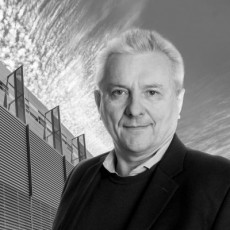Berkeley Lab CS Staff Play Integral Role in ISC18
June 21, 2018
Numerous Berkeley Lab Computing Sciences staff will be participating in the ISC18 conference June 24-28 in Frankfurt, Germany. In addition, Berkeley Lab Deputy Director Horst Simon is this year’s Program Chair and John Shalf is the Workshops Chair.
First held in 1986, ISC High Performance is the oldest conference and networking event for the high performance computing (HPC) community. It offers a five-day technical program focusing on HPC technological development and its application in scientific fields and commercial environments. For 2018 the program team selected 11 key topics:
- Beyond Moore’s Law
- Exascale Systems
- Climate Change
- Big Data Analytics
- Cosmology and HPC
- HPC in Medicine
- Future Applications for Quantum Computers
- What’s New with Cloud Computing for HPC?
- Future Challenges for Programming Models and Languages
- The Rise of Containerized HPC
- Artificial Intelligence on HPC Platforms
"I have been attending ISC conference series since the early 1990s, and as supercomputing has grown in its importance in scientific and industrial applications, ISC has evolved from a meeting of a small group of technical experts into an international conference of wide geographical reach and deep scientific impact,” said Simon.
Simon and Berkeley Lab’s Erich Strohmeier, who founded the TOP500, will also present the TOP500 award. The TOP500 project ranks and details the 500 most powerful non-distributed computer systems in the world. The project was started in 1993 and publishes an updated list of the supercomputers twice a year.
In addition, in conjunction with ISC2018, the first Workshop on Interactive High-Performance Computing will be held Thursday, June 28. During the event, NERSC’s Wahid Bhimji will present a paper and demo on “Interactive Distributed Deep Learning with Jupyter Notebooks." Contributors to this presentation include Steve Farrell (NERSC), Matt Henderson (CRD), Shreyas Cholia (CRD), Oliver Evans (CRD) and Aaron Vose (Cray).
Here is a list of presentations, panels and other events involving Berkeley Lab Computing Sciences staff:
Sunday June 24
Presentations
- A Practical Approach to Application Performance Tuning with the Roofline Model – authors include Tuomas Koskela, Charlene Yang
Monday June 25
- Opening Session – Horst Simon
Panels
- Top500, Green500 and HPCG Awards – speakers include Horst Simon
- Top500’s Relevance after 25 Years – Horst Simon, moderator
- Will HPC Transform AI or Will AI Transform HPC? – John Shalf, moderator
Focus Session
- What’s New with Cloud Computing for HPC – John Shalf, session co-chair
Presentations
- Highlights of the 51st TOP500 List – Erich Strohmeier
- Hans Meuer Award Ceremony – Horst Simon, co-chair
Tuesday June 26
Distinguished Speaker
- Incentives and Games in Large-Scale Mobility – Alex Bayen
Birds of a Feather
- The Green500: Trends in Energy Efficient Supercomputing – speakers include Erich Strohmaier
Presentations
- Cyber Security Challenges and Opportunities in High Performance Computing Environments – Sean Peisert
Focus Session
- Urban Science and High Performance Computing – Mary Ann Piette
Wednesday June 27
Panels
- Convergence of Extreme-Scale Computing and Big Data – Looking Back and Looking Ahead – panelists include John Shalf
Focus Session
- Spatial Computing: A Synthesis of Data-Centric Computing and Extreme Hardware Specialization – John Shalf
Research Papers
- A Novel Multi-Level Integrated Roofline Model Approach for Performance Characterization - Berkeley Lab authors: Tuomas Koskela, Jack Deslippe, Charlene Yang, Rahulkuma Gayatri, Honzhang Shan, Samuel Williams, Leonid Oliker, Zhengji Zhao
- The Pitfalls of Provisioning Exascale Networks: A Trace Replay Analysis for Understanding Communication Performance – authors include George Michelogiannakis
Thursday June 28
- First Workshop on Interactive High-Performance Computing – presenters include Wahid Bhimji, “Interactive Distributed Deep Learning with Jupyter Notebooks”
- Second Workshop on HPC Computing in a Post Moore’s Law World – organizers include George Michelogiannakis
- Third Workshop for Open Source Supercomputing – organizers include David Donofrio – presenters include Anastasiia Butko, Farzad Fatollahi-Fard
About Berkeley Lab
Founded in 1931 on the belief that the biggest scientific challenges are best addressed by teams, Lawrence Berkeley National Laboratory and its scientists have been recognized with 16 Nobel Prizes. Today, Berkeley Lab researchers develop sustainable energy and environmental solutions, create useful new materials, advance the frontiers of computing, and probe the mysteries of life, matter, and the universe. Scientists from around the world rely on the Lab’s facilities for their own discovery science. Berkeley Lab is a multiprogram national laboratory, managed by the University of California for the U.S. Department of Energy’s Office of Science.
DOE’s Office of Science is the single largest supporter of basic research in the physical sciences in the United States, and is working to address some of the most pressing challenges of our time. For more information, please visit energy.gov/science.










